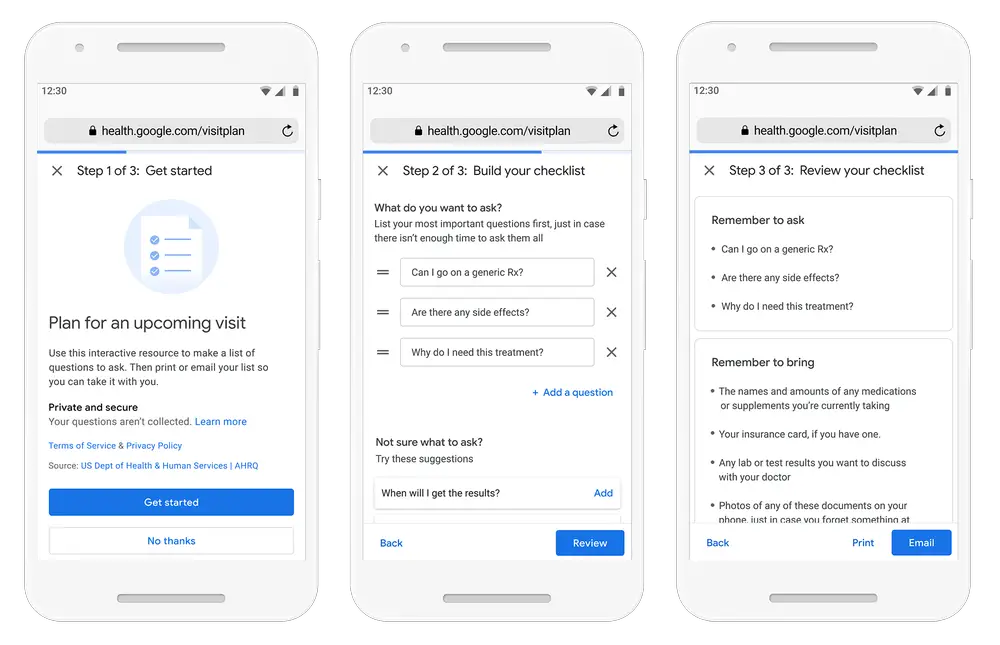
What You Should Know:
– Built-in collaboration with the Agency for Healthcare Research and Quality (AHRQ), Google is piloting a new tool to help patients plan for medical visits.
– The new Google visit planning tool makes it easy for
patients and those who care for them to privately list and prioritize their
questions in preparation for a medical visit.
– The suggested questions, developed by AHRQ as part of its “Questions are the Answer” initiative, is designed to get people thinking about their goals and priorities for the visit.
Today, Google announced it is piloting
a new online tool to help patients plan for medical visits as part of an ongoing
collaboration with Agency
for Healthcare Research and Quality (AHRQ), part of the U.S.
Department of Health and Human Services.
How It Works
The new Google visit planning tool is built on the same
evidence behind AHRQ’s QuestionBuilder app. The new tool will make it easy for
patients and caretakers to develop a visit plan by selecting from
evidence-based questions like, “What is this test for?” as well as adding their
own questions. When people use Google to search for a healthcare provider, they
will have the option to create their own private visit plan. Once completed,
patients can print or email the visit plan and bring it to the doctor’s office
to help them remember important questions they want to ask. In addition, the
visit plan also includes a reminder of things patients should bring to the
visit, like a list of current medications, recent lab results, and their insurance
card.
Private & Secure
The tool does not gather any personal health information or
store any of the information that is entered into the tool. People have the
option to print or email their visit plan, and people can use this tool without
signing into a Google account.
Why It Matters
“Patients who prepare for medical visits by prioritizing their questions, strengthen their role as members of their own health care team,” said Jeffrey Brady, M.D., M.P.H., a preventive medicine physician and Director of the Center for Quality Improvement and Patient Safety at the AHRQ. Dr. Brady added, “This helps clinicians maximize their time with patients so they can better address their most critical health needs. Clinicians appreciate that healthcare can be more efficient, effective, and higher quality when they work together with patients.”
Availability
This tool is currently in the pilot phase and is only available to a limited number of people in the United States and will expand to more users over time.
